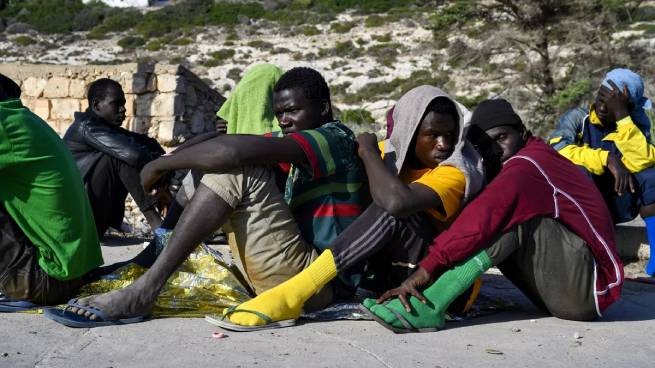The changed asylum rules are compiled into the new EU-approved Pact on Migration and Asylum, and consist of five laws.
Despite resistance from Hungary and Poland, The European Union approved migration reform, which provides, in particular, new rules to speed up procedures at the border. The process of final approval of the new migration and asylum pact has been agonizing and at times explosive. Representatives of the participating countries met to give final approval to the five laws. They provide:
- more thorough screening of applicants,
- conducting medical examinations,
- safety assessment,
- speeding up the paperwork process,
- providing free consultations.
The main innovation is system of “obligatory solidarity”which will give governments three options for dealing with those wishing to remain in the EU:
- bring and settle a certain number of migrants,
- pay 20 thousand euros for each rejected person,
- fund operational support.
The initial goal is 30 thousand migrations annually. Poland and Hungary, the most ardent critics, voted against the entire package of laws. Since introducing the reform in 2020, they have consistently resisted the “mandatory solidarity” system, falsely arguing that it would force their countries to accept migrants against their will.
The Czech Republic and Slovakia chose to abstain from voting on most aspectsbeing skeptical about them, and Austria voted against anti-crisis resolution.
The southern states of the European Union complained that they were overburdened and left to fend for themselves. Western and northern countries demanded greater responsibility and control at external borders, while eastern states resisted any initiatives resembling resettlement quotas.
Amid all this turmoil ultra-right forces saw their chance and promptly jumped on this topic, like on a trampoline, in the hope of increasing their importance and success in the elections. The shock of this political earthquake is still being felt today, with polls ahead of the June elections predicting a sharp turn to the right.
Acting on the principle of “if not now, then when?”, member countries overcame their differences and gradually unblocked the five parts of the New Pact over the past year before finally reaching a preliminary agreement with parliament in December. The “historic” agreement was approved with difficulty by MEPs in April, after heated debate. President of the European Parliament Roberta Metsola says:
“This package is a big step forward. It won't solve every problem overnight, but it is ten giant steps forward.”
As a result, the Council vote on Tuesday passed without drama or debate – all the details that could be discussed had already been discussed many times. The only thing left is to publish the new pact in the official journal EU. After this, it will take two years for it to come into full force.







More Stories
The number of children immigrating to Greece has quadrupled in a year
Austria: Migrants to perform charitable duties or… lose benefits (video)
The most attractive countries for asylum seekers in 2024